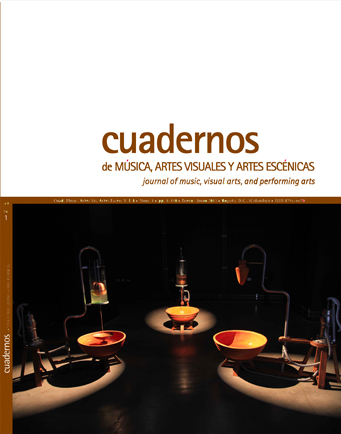Abstract
Este artículo parte de la necesidad de que la educación musical se adecúe a los nuevos modelos comunicativos y sociales del siglo xxi, que profundicen en el desarrollo humano y el bienestar. Para dar respuesta a este reto, se parte de la conceptualización de la psicología positiva, y en concreto de las virtudes y fortalezas de carácter argumentadas por Peterson y Seligman. Paralelamente se muestran 24 proyectos educativos musicales de todo el mundo que tienen su fundamentación y razón de ser en las fortalezas citadas. Cada uno de estos proyectos muestra cómo las actividades surgidas desde las necesidades sociales conforman un camino hacia la construcción ciudadana y el desarrollo humano, para los cuales es de vital importancia la flexibilidad que permiten los entornos no formales en las propuestas de modelos de educación musical para el nuevo siglo.
This journal is registered under a Creative Commons Attribution 4.0 International Public License. Thus, this work may be reproduced, distributed, and publicly shared in digital format, as long as the names of the authors and Pontificia Universidad Javeriana are acknowledged. Others are allowed to quote, adapt, transform, auto-archive, republish, and create based on this material, for any purpose, provided the authorship is duly acknowledged, a link to the original work is provided, and it is specified if changes have been made. Pontificia Universidad Javeriana does not hold the rights of published works and the authors are solely responsible for the contents of their works; they keep the moral, intellectual, privacy, and publicity rights.
Approving the intervention of the work (review, copy-editing, translation, layout) and the following outreach, are granted through an use license and not through an assignment of rights. This means the journal and Pontificia Universidad Javeriana cannot be held responsible for any ethical malpractice by the authors. As a consequence of the protection granted by the use license, the journal is able to publish retractions or to correct information already published. Publishing contents in this journal does not generate royalties for contributors.



